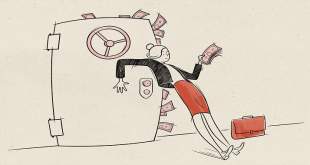Living debt-free is a key component of financial stability and peace of mind. Paying off debt quickly requires a strategic approach, discipline, and determination. By implementing effective strategies, you can eliminate debt faster and achieve financial freedom. Here are proven strategies to help you pay off debt quickly and live debt-free.
1. Assess Your Debt Situation:
The first step in paying off debt is understanding the full scope of what you owe. List all your debts, including credit cards, personal loans, student loans, and any other obligations. Note the balance, interest rate, and minimum monthly payment for each debt. This will help you create a clear plan of action.
2. Create a Budget:
A budget is essential for managing your finances and prioritizing debt repayment. Track your income and expenses to see where your money is going. Allocate funds for necessary expenses, savings, and debt repayment. A well-structured budget will help you stay on track and ensure you’re making consistent progress towards your debt-free goal.
3. Prioritize High-Interest Debt:
High-interest debt, such as credit card debt, can accumulate quickly and become overwhelming. Focus on paying off high-interest debts first to save money on interest payments. Use the debt avalanche method, where you prioritize debts with the highest interest rates while making minimum payments on other debts.
4. Use the Debt Snowball Method:
The debt snowball method involves paying off your smallest debts first while making minimum payments on larger debts. Once a small debt is paid off, you move on to the next smallest debt, applying the extra funds from the paid-off debt. This method provides quick wins and helps build momentum.
5. Increase Your Income:
Boosting your income can significantly speed up debt repayment. Consider taking on a part-time job, freelancing, or starting a side hustle. Use the extra income to make additional payments towards your debt. Every extra dollar you put towards your debt helps you pay it off faster.
6. Reduce Unnecessary Expenses:
Cutting back on non-essential spending frees up more money for debt repayment. Review your expenses and identify areas where you can save, such as dining out, entertainment, and subscriptions. Small changes in your spending habits can lead to significant savings over time.
7. Automate Your Payments:
Automating your debt payments ensures that you never miss a payment and helps you stay consistent. Set up automatic transfers for the minimum payments on all your debts and automate additional payments towards your prioritized debt. This can help you avoid late fees and reduce your debt faster.
8. Negotiate Lower Interest Rates:
Contact your creditors to negotiate lower interest rates on your debts. Lowering your interest rates can reduce the amount you pay in interest and help you pay off your debt more quickly. Be honest about your situation and ask if there are any options available to reduce your rates.
9. Use Windfalls Wisely:
When you receive unexpected money, such as a tax refund, bonus, or gift, use it to make extra payments towards your debt. Windfalls can provide a significant boost to your debt repayment efforts and help you reach your goals faster.
10. Consider Debt Consolidation:
Debt consolidation involves combining multiple debts into a single loan with a lower interest rate. This can simplify your payments and potentially reduce your interest costs. Explore options like personal loans or balance transfer credit cards, but be cautious of fees and ensure that the new loan terms are favorable.
11. Avoid Accumulating More Debt:
While paying off existing debt, avoid taking on new debt. Be mindful of your spending habits and use cash or debit cards instead of credit cards. If you must use credit, ensure that you can pay off the balance in full each month to avoid accumulating more debt.
12. Seek Professional Help:
If you’re struggling to manage your debt, consider seeking help from a credit counseling agency or financial advisor. They can provide personalized advice, negotiate with creditors on your behalf, and help you create a feasible debt repayment plan.
13. Stay Motivated:
Paying off debt can be a long and challenging process. Stay motivated by setting milestones and celebrating small victories along the way. Visualize your debt-free future and remind yourself of the benefits of living without debt.
14. Educate Yourself on Financial Management:
Improving your financial literacy can help you make better decisions and avoid future debt. Read books, take courses, and follow reputable financial blogs and podcasts to expand your knowledge on personal finance and debt management.
15. Create an Emergency Fund:
Having an emergency fund can prevent you from relying on credit in case of unexpected expenses. Aim to save three to six months’ worth of living expenses in a separate, easily accessible account. An emergency fund provides a financial safety net and helps you stay debt-free in the long run.
Conclusion:
Living debt-free is achievable with the right strategies and mindset. By assessing your debt situation, creating a budget, prioritizing high-interest debt, and using methods like the debt snowball and debt avalanche, you can pay off your debt quickly. Increasing your income, reducing expenses, and staying motivated are crucial for success. Educate yourself on financial management, seek professional help if needed, and build an emergency fund to ensure long-term financial stability. Start implementing these strategies today and enjoy the benefits of a debt-free life.


